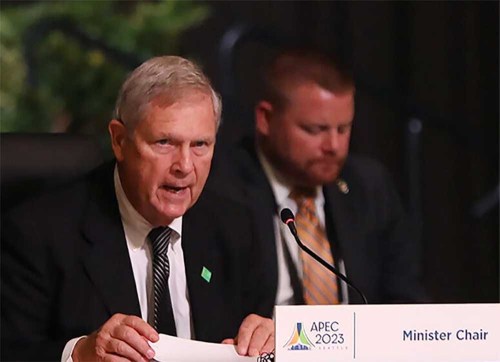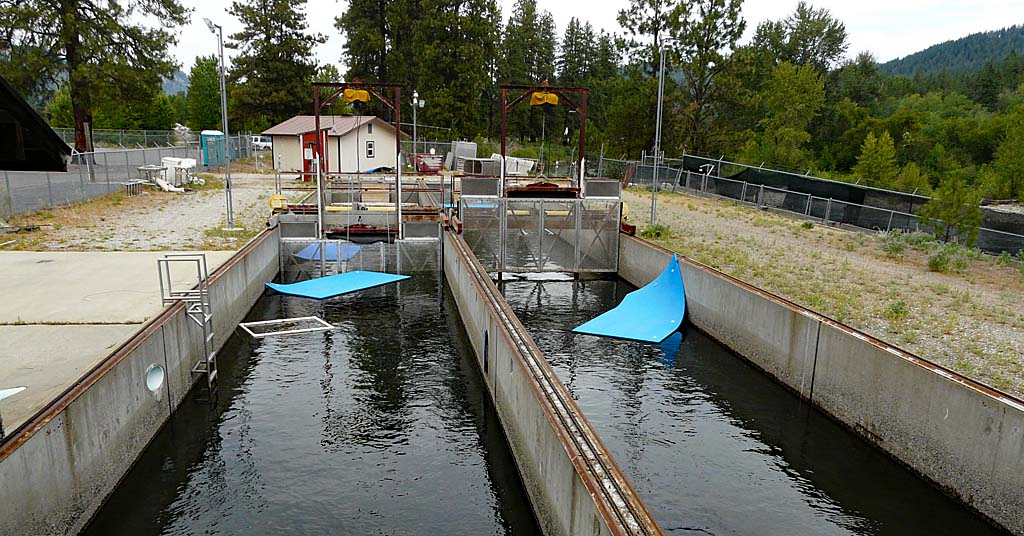Washington, U.S. agriculture host Asia-Pacific reps at Seattle conference
Published 8:30 am Friday, August 4, 2023

- U.S. Agriculture Secretary Tom Vilsack speaks during a session of the APEC meetings in Seattle.
More than 2,000 delegates from the 21 Asia-Pacific Economic Cooperation member nations are in Seattle for three weeks of meetings to discuss trade and other issues.
The APEC Senior Officials and Ministerial Meetings, July 29 to Aug. 21, focus on economic priorities within the Asia-Pacific region, including food security, disaster management, finance, health, energy and small and medium-sized enterprises.
Trending
“We’re, of course, a tremendous export state — we’re known as one of the most, if not the most trade-dependent state,” Derek Sandison, director of the Washington Department of Agriculture, told the Capital Press. “It’s important that we understand where the other economies are heading with respect to food policy, that we understand where our trading partners are at.”
Several Washington commodity commissions provided products and funding for a reception for delegates Aug. 2, hosted by WSDA, USDA Foreign Agricultural Service and the Greater Seattle Partners.
“We’re always looking for expanded trade opportunities,” Sandison said. “You want to at least hold what you have, but then expand markets where you can. It doesn’t always take a free trade agreement.”
As examples, Sandison pointed to the potential to gradually increase exports to markets in Vietnam and Indonesia.
“We’re trying to make sure the other economies know that we’re in the game, that we have high-quality products,” he said. “We want to do business … and make sure they understand how interested we are in expanding trade.”
Sandison pointed to the lifting of retaliatory tariffs on U.S. apples and pulse crops in India as a positive sign.
Trending
“Little by little, we just keep hammering away at those barriers to trade and trying to open up as many new doors as possible,” he said. “It’s something we’ve got to be attentive to all the time.”
Food security was one of the earliest conversations in the conference, including providing enough food to feed the Pacific Rim population, Sandison said.
U.S. Agriculture Secretary Tom Vilsack chaired the food security ministerial meeting Aug. 3.
In comments made during the conference, Vilsack emphasized the importance of food being available, accessible, stable and affordable.
Innovation and science will provide farmers, fishers, foresters and other producers with the necessary tools to improve productivity, sustainability and resilience, Vilsack said.
“Accelerating agricultural productivity growth to reduce agriculture’s environmental footprint and reducing greenhouse gas emissions from agriculture is also imperative,” Vilsack said.
Without agricultural productivity growth, meeting the world’s current and future food needs would require increased use of natural resources, including the expansion of agriculture into forests and other critical ecosystems, Vilsack said.
“Such an expansion would threaten our ability to meet greenhouse gas emissions reduction goals, even if other human activities were dramatically curtailed,” he said. “The consequences of failing to accelerate agricultural productivity growth could be dire.”









